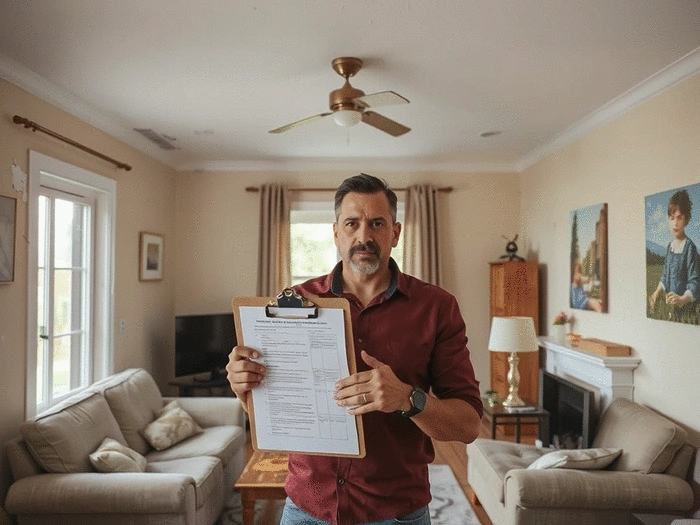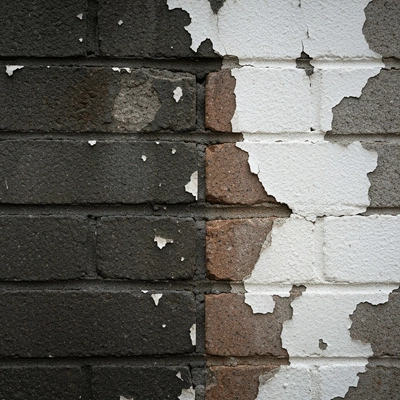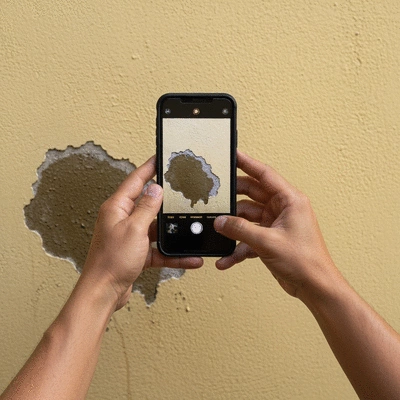Documentation of Communication
Keep a detailed log of all interactions with your landlord regarding disrepair issues.
Unlock your FREE 'Quick-Start Guide to No Win No Fee Claims' and demystify the legal process.
Posted on: 2025-08-31
By: Sarah Thompson
When it comes to housing disrepair claims, understanding your rights and the importance of evidence can make all the difference in your journey to a safer living environment. Are you aware of what documentation you'll need to support your case? Let’s delve into the essential takeaways that will empower you as a tenant.
Gathering and documenting the right evidence is essential for a successful housing disrepair claim. Here are the key types of evidence needed:
Keep a detailed log of all interactions with your landlord regarding disrepair issues.
Document the state of disrepair with clear photographs to support your claim.
Gather statements from neighbors or other tenants to reinforce your case.
Include any medical records if your health has been impacted by the disrepair.
Maintain a log of all repair requests made to your landlord and their responses.
When it comes to housing disrepair claims, having a solid understanding of what constitutes a valid claim is essential. These claims arise when a rented property falls into a state of disrepair, which can significantly affect your quality of life. Whether it’s a leaking roof, damp walls, or broken heating, knowing your rights and how to effectively present your case is crucial. I often see tenants feeling overwhelmed by the process, but with the right information, you can navigate it confidently.
In this section, we’ll explore the ins and outs of housing disrepair claims, focusing on why evidence is key. We'll also look at the rights granted to tenants under the law, ensuring you’re equipped with the knowledge you need to advocate for yourself. For a more detailed look, you can also explore our comprehensive guide on understanding housing disrepair claims.
A housing disrepair claim is a legal request made by a tenant against a landlord for failing to maintain a property in a safe and habitable condition. This type of claim can cover a range of issues, from minor repairs like faulty plumbing to major concerns such as structural problems. Understanding what qualifies as disrepair is vital, as it determines whether your claim will proceed.
It's essential to note that landlords have a legal obligation to ensure their properties are safe and fit for habitation. If they fail in this duty, you have the right to seek compensation through a housing disrepair claim.
Evidence is the backbone of any successful housing disrepair claim. Without it, proving your case becomes a daunting task. The more comprehensive your evidence, the stronger your position will be when negotiating with your landlord or pursuing legal action. I can’t stress enough how important it is to keep detailed records throughout the claim process!
Gathering this evidence not only helps substantiate your claims but also demonstrates to your landlord that you are serious about pursuing your rights. It can help you avoid common pitfalls and strengthen your case significantly. For more information on how financial arrangements work in legal cases, consider reading about understanding no win no fee claims.
As a tenant, you have specific rights when it comes to disrepair claims. Knowing these rights empowers you to take action and seek the repairs you deserve. The law protects you against unsafe living conditions, and landlords can be held accountable for failing to address issues promptly.
Under the Housing Act 1988 and various other regulations, tenants are entitled to live in a property that is fit for human habitation. This means your landlord must ensure that:
If your landlord neglects these responsibilities, you may be eligible to make a disrepair claim. Remember, keeping detailed evidence of your communications and the state of your property can significantly support your position!
When documenting your housing disrepair claim, consider using a digital app to keep track of your evidence. Many apps allow you to take photos, log communications, and even set reminders for follow-ups with your landlord. This not only streamlines the process but also ensures that you have everything organized in one place, making it easier to present your case when necessary.
As we wrap up our discussion on housing disrepair claims, it’s essential to recap the key evidence you need to support your claim. First and foremost, documenting your issues effectively is crucial. This means keeping a detailed record of all communications with your landlord and maintaining a log of repair requests. Additionally, having photographic evidence of the damage will bolster your case significantly. Don’t forget to gather any medical reports if your health has been impacted by the disrepair. All these elements combine to create a strong foundation for your claim.
Taking these steps can feel overwhelming at first, but remember, you don’t have to navigate this process alone. If you find yourself needing further assistance, reaching out for legal help can provide clarity and confidence as you move forward with your claim.
Each piece of evidence plays a vital role in strengthening your case. By ensuring you cover these bases, you enhance your chances of a successful outcome.
If your housing disrepair claim becomes complicated, or if your landlord is uncooperative, it may be time to seek legal assistance. At Solicitors No Win No Fee, we specialize in helping individuals like you navigate these challenging situations. Our resources are tailored to empower you with the knowledge and support you need to pursue your claim effectively.
Don’t hesitate to reach out if you have questions or need guidance in selecting the right legal support. The right advice can make all the difference in securing your rights as a tenant. You can also learn more about your rights and potential compensation in a housing disrepair and compensation guide.
As you embark on this journey, know that there are numerous resources available to you. Whether you need emotional support or legal advice, help is out there!
These organizations can provide valuable information and support as you navigate your housing disrepair claim. They often offer free consultations, which can be an excellent first step in understanding your rights.
In addition to advocacy groups, consider consulting with legal professionals who have experience in housing disrepair claims. Many solicitors offer no win no fee arrangements, reducing your financial risk while pursuing your claim. At Solicitors No Win No Fee, we’re dedicated to making legal information accessible and understandable, so you can focus on what matters: getting your living situation resolved.
Now that you have a clearer understanding of the evidence needed for your housing disrepair claim, it’s time to take action. Don’t let disrepair issues linger; tackle them head-on!
Understanding your potential compensation is vital. Claims can vary greatly depending on the severity of the disrepair and its impact on your health and wellbeing. Educating yourself about what you may be entitled to can empower you during negotiations with your landlord.
Your next steps should include gathering your evidence and documenting everything related to your claim. Whether it’s photo documentation or keeping a detailed record of communications with your landlord, every bit counts. Remember, I’m here to help you through this process. Don’t hesitate to reach out with any questions or for guidance on your next steps!
Here is a quick recap of the important points discussed in the article:
A housing disrepair claim is a legal request by a tenant against their landlord for failing to maintain the property in a safe and habitable condition. This can include issues like leaks, dampness, structural damage, broken heating, or pest infestations.
Key evidence includes detailed documentation of all communication with your landlord (letters, emails, texts), clear photographs and videos of the disrepair with dates, witness statements from neighbors, and any medical reports if your health has been affected by the conditions.
Under the Housing Act 1988, tenants have the right to live in a property that is fit for human habitation. This means landlords must ensure the property is structurally sound, free from hazards, and that all necessary repairs are carried out promptly.
It is advisable to seek legal help if your landlord is uncooperative, if the disrepair is severe and impacting your health or safety, or if the claim becomes complex. Many solicitors, like Solicitors No Win No Fee, offer "no win, no fee" arrangements.
Yes, you may be entitled to compensation depending on the severity of the disrepair, how long it has persisted, and its impact on your health, wellbeing, and enjoyment of the property. Documenting all damages and related expenses is crucial for a compensation claim.



 Did you know that many tenants are unaware of their rights regarding housing disrepair? Understandin
Did you know that many tenants are unaware of their rights regarding housing disrepair? Understandin
 In today's uncertain job market, knowing your rights when it comes to termination is more crucial th
In today's uncertain job market, knowing your rights when it comes to termination is more crucial th
 In the world of serious injury claims, navigating financial challenges can be daunting. Interim paym
In the world of serious injury claims, navigating financial challenges can be daunting. Interim paym